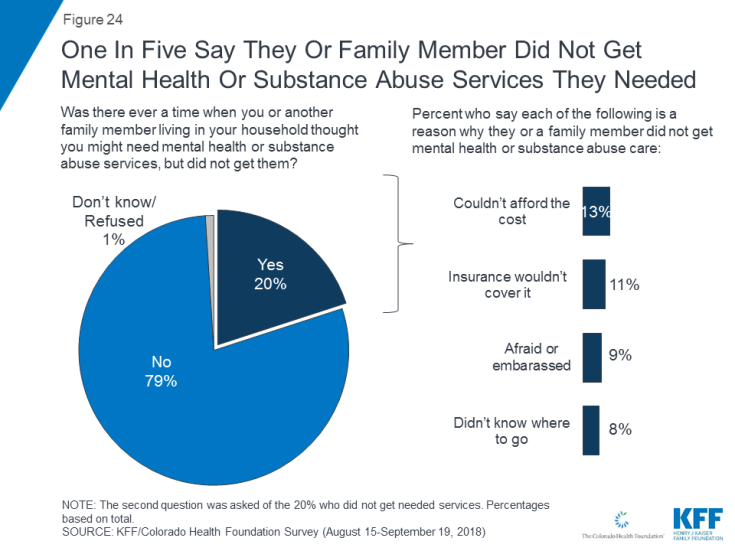Coloradans’ Perspectives on Health, Quality of Life, and Midterm Elections
Section Four: Health Care Concerns Include Affordability, Mental Health and Substance Abuse
Half of Coloradans say it has gotten harder for people like them to afford health care, and this is consistent across key demographic groups with similar shares of Coloradans, regardless of race/ethnicity, income, or region saying it has gotten harder to afford health care in recent years. Yet, larger shares of individuals who report being in either fair or poor health generally (60 percent) or describe their mental health status as either fair or poor (67 percent), say it has become “harder” to afford health care during the past year.
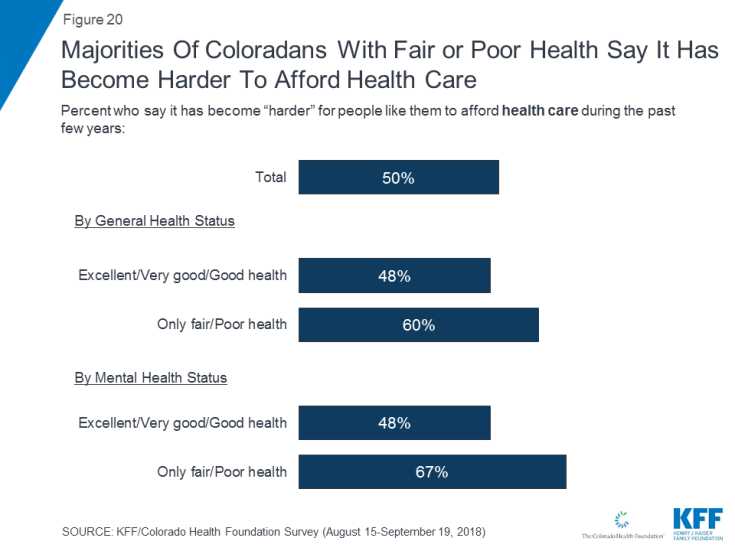
Figure 20: Majorities Of Coloradans With Fair or Poor Health Say It Has Become Harder To Afford Health Care
Moreover, while most Coloradans (65 percent) say their current family’s health care needs are being met, there are some concerns about whether the system is meeting most Coloradans’ health care needs. Nearly equal shares agree (46 percent) and disagree (45 percent) that the current health care system is meeting the needs of most Coloradans. This is consistent with findings from the 2017 Colorado Health Access Survey.
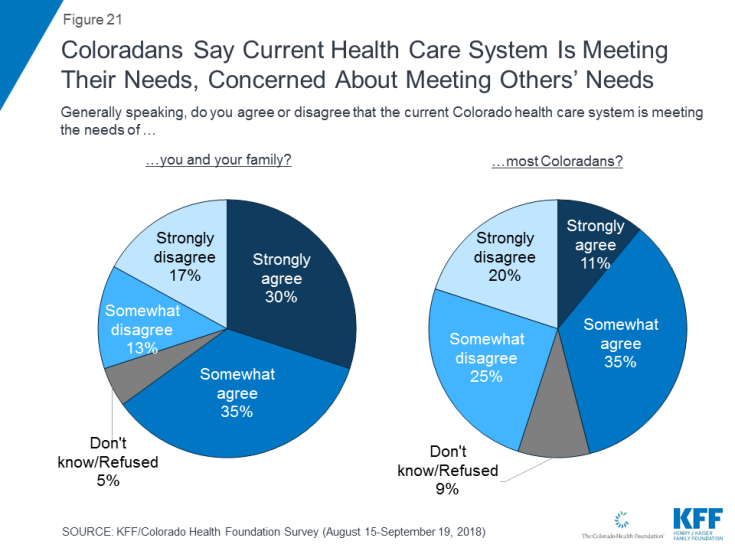
Figure 21: Coloradans Say Current Health Care System Is Meeting Their Needs, Concerned About Meeting Others’ Needs
There are some differences in perceptions of the Colorado health care system by region and income. Individuals living in the Front Range region or Rural region are less likely to agree that the current Colorado health care system is meeting their own family’s needs (60 percent and 58 percent, respectively) compared to those living in the Denver and Boulder area (71 percent) or the Suburbs (71 percent). Three-fourths (72 percent) of individuals earning more than $90,000 annually agree the current Colorado health care system is meeting their family’s needs compared to nearly six in ten of those earning less than that.
| Table 3: Perceptions of Colorado Health Care System by Key Demographics | ||||||||||
| Percent who agree that the current Colorado health care system is meeting the needs of… | Region | Race/Ethnicity | Self-reported income | |||||||
| Denver/ Boulder |
Suburbs | Front Range | Rural | White, Non-Hispanic | Black, Non-Hispanic | Hispanic | <$40k | $40k–$89.9k | $90k+ | |
| …them and their family members | 71% | 71% | 60% | 58% | 64% | 74% | 69% | 63% | 62% | 72% |
| …most Coloradans | 46 | 49 | 44 | 43 | 44 | 50 | 52 | 47 | 45 | 45 |
Consistent with previous health policy research, this survey finds a strong connection between income and self-reported health status. A smaller share of those who earn a household income of less than $40,000 annually report either “excellent” or “very good” health and mental health. Less than half of those earning less than $40,000 report that their general health (38 percent) or their mental health (47 percent) is “excellent” or “very good,” compared to majorities of those earning $40,000 or more annually. Yet, a significant share of these lower-income residents also report that their general health and mental health is “good,” and less than one-third report their health status as either “only fair” or “poor.” Self-perceived general health also differs by race/ethnicity, with four in ten Black and Hispanic residents (40 percent each) saying their health is “excellent” or “very” good compared with almost six in ten white residents (57 percent).
| Table 4: Perceptions of Own Health Status by Key Demographics | ||||||||||
| Percent who say the following is “excellent” or “very good”: | Region | Race/Ethnicity | Self-reported income | |||||||
| Denver/ Boulder |
Suburbs | Front Range | Rural | White, Non-Hispanic | Black, Non-Hispanic | Hispanic | <$40k | $40k–$89.9k | $90k+ | |
| Their health | 57% | 53% | 51% | 50% | 57% | 40% | 40% | 38% | 56% | 68% |
| Their mental health | 61 | 62 | 67 | 64 | 66 | 63 | 59 | 47 | 67 | 80 |
Mental Health and Substance Abuse
A majority of Coloradans (61 percent) say that most people in the state who need mental health services are not able to get them while three in ten say they are able to get them. Of those who say people in the state are not able to get the mental health services they need, most (59 percent of total) say this is either a “major problem” (49 percent of total) or a “minor problem” (10 percent of total), while few (2 percent of total) say this is “not a problem.”
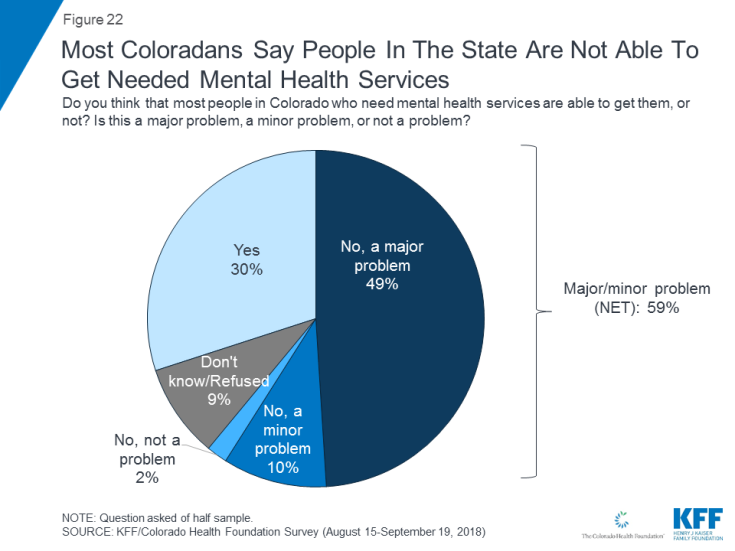
Figure 22: Most Coloradans Say People In The State Are Not Able To Get Needed Mental Health Services
Fewer – but still four in ten (44 percent) – say most people in Colorado who need substance abuse services are not able to get the services they need. Of these, most (about one-third of total) say this a major problem while one in ten overall (9 percent) say this is a minor problem. Four in ten (43 percent) say they think most people who need these services are able to receive them.
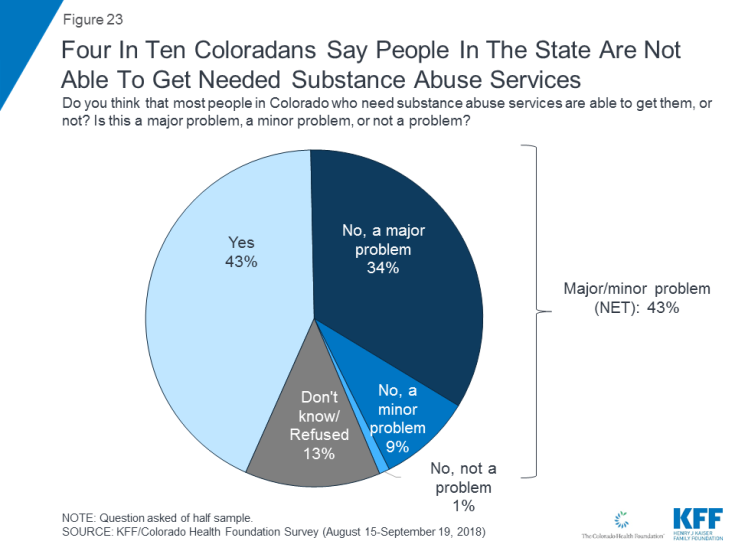
Figure 23: Four In Ten Coloradans Say People In The State Are Not Able To Get Needed Substance Abuse Services
One in five Coloradans say there was a time when they or another family member thought they might need mental health or substance abuse services but did not get them. Individuals say they did not get mental health or substance abuse services because they could not afford the cost (13 percent), insurance would not cover it (11 percent), they were afraid or embarrassed to seek care (9 percent), or they did not know where to get care (8 percent).

